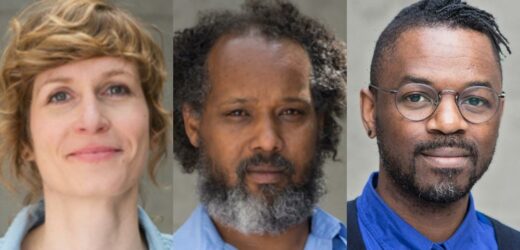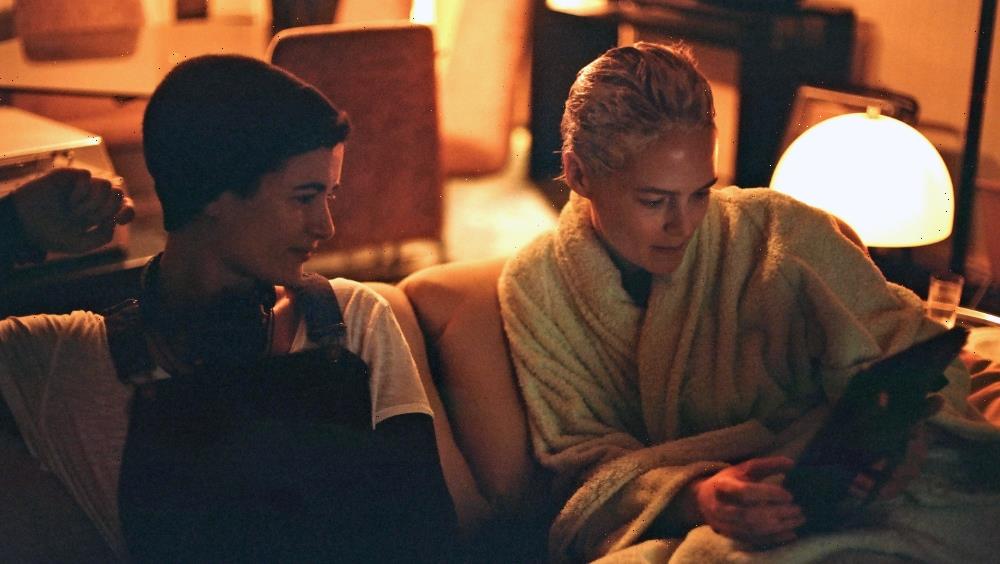The European Film Market (EFM) is hosting a day-long event on diversity, equity and inclusion on Feb. 16, bringing together a host of industry stakeholders in an effort to set the agenda for better representation — both on and off screen — in Europe’s film and television industries.
The Equity and Inclusion Pathways Seminar will bring together roughly 100 industry professionals from 21 countries, representing both their respective media industries as well as regional and pan-European organizations and advocacy groups working toward greater diversity and inclusion.
By bringing European decision-makers and advocacy bodies together at the same table, the organizers hope to introduce “sustainable, lasting change” to Europe’s screen industries by “bring[ing] about better policy-making, measures and initiatives regarding inclusion, equity and accessibility,” according to Faysal Omer, head of EFM Producers.
Co-financed by the European Union’s Creative Europe – MEDIA program, this year’s seminar will be the first of three such annual events taking place during the European Film Market through 2025.
The initiative was conceived in part as a response to the murder of George Floyd and other events that catalyzed the 2020 Black Lives Matter movement in the U.S.
“Both Faysal and I were struck by the momentum of the global uprisings of the summer of 2020, but also by the apparent disconnect that we as Black Europeans and film professionals experienced in the European film industry’s response or, in many cases, lack of response,” said Themba Bhebhe, head of Diversity and Inclusion at EFM. “A lot of lip service was paid, there was a plethora of open letters, but we didn’t feel that the industry had truly received the memo.”
Around that time, the Anti-Racism Task Force for European Film (ARTEF) was launched, bringing together stakeholders from across the continent’s screen industries for a series of workshops led by Emilia Roig, founder of the Berlin-based Center for Intersectional Justice. Their goal, said Omer, was “to create a greater awareness of the reality of structural racism in film.
“During these workshops, we realized that, fundamentally, many had recognized the zeitgeist and could no longer ignore or actively deny the existence of structural racism,” he added. “And now is certainly the time to set the agenda in terms of equity, inclusion and accessibility.”
This week’s seminar will feature a host of keynotes, presentations, conversations and debates, followed by a vote to determine five overarching resolutions for the assembled industry representatives centered on diversity, equity, inclusion and accessibility.
“The call to action will involve a commitment by all involved to further the goals formulated in those resolutions, to being held accountable, to investing time and resources in order to make them become reality,” said Omer.
The sessions will be moderated by science journalist, TV documentarian and professor John Kantara; Yolanda Rother, a diversity, equity and inclusion specialist and advisor, as well as conference curator, community activator and speaker who moderated the interactive format Framing of Us at last year’s EFM; Adriana Chartrand, Téléfilm Canada’s Lead, Indigenous Initiatives and Content Analyst, who previously worked for several years at imagineNATIVE, the world’s largest Indigenous film festival in Toronto; and European Film Academy director Matthijs Wouter Knol, who was also the main driving force behind ARTEF.
Key points on the agenda include a session led by Charlie Hidalgo and Lucy Mukerjee, of the Misrepresentation collective, who will address the problematic representations of underrepresented groups onscreen, focusing particularly on the trans community. The Stereotype Project will be shining a light on its pioneering app which comprises a comprehensive database of the countless harmful stereotypes that can appear on screen and is able to analyze scripts to identify their use. ARTEF will also be presenting a case study of how to combat harmful tropes centering on Indigenous nations in film.
Téléfilm Canada’s Chartrand, meanwhile, will moderate a session focused on the impact of organizations such as the Indigenous Screen Office and the Black Screen Office, as well as funding structures within larger organizations such as the Canada Media Fund and Téléfilm Canada.
Lastly, a European spotlight will feature the work of organizations such as ARTEF, the New Dawn film fund and France’s Collectif 5050. RomaTrial, which advocates on behalf of Europe’s largest ethnic group, the Roma people, and organizes the Ake Dikhea? Festival of Romani Film, will also share the stage with the International Sámi Film Institute, whose ground-breaking work for over a decade has fostered a new wave of productions by Sámi film creatives.
The event builds on a concerted effort by the European Film Market in recent years to bring representation to the forefront of the conversation for film and TV professionals. Manu Guddait, head of EFM’s Strategic Development and Partnerships and head of program at the EFM Industry Sessions, pointed to a series of think tanks hosted within the EFM framework that are designed “to unpack, brainstorm and provide pragmatic solutions to the contemporary challenges and issues that exist in film and TV,” among them how to improve diversity, equity and inclusion in the European creative industries.
“I would be in denial if I didn’t acknowledge the extent to which many European countries still struggle with recognizing the diverse reality of their society,” said Guddait. “I also think that beyond the U.S., including here in Europe, there’s an abundance of organizations that are doing pioneering work to strengthen the interests of marginalized film professionals.”
“There’s a sense of urgency,” added Omer. “Europe has been behind in the conversation and its policies for a long time, but the gap is closing quite fast.”
(Pictured, L-R: Themba Bhebhe, Faysal Omer, Manu Guddait)
Read More About:
Source: Read Full Article


